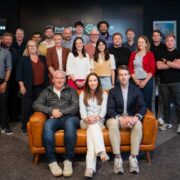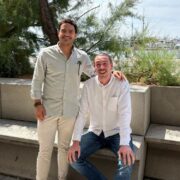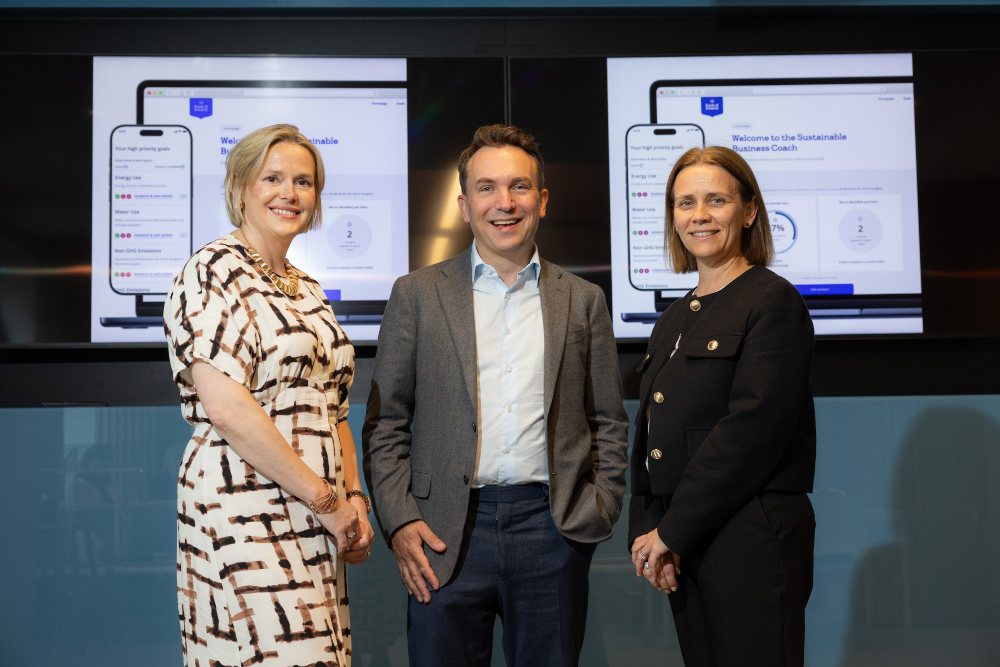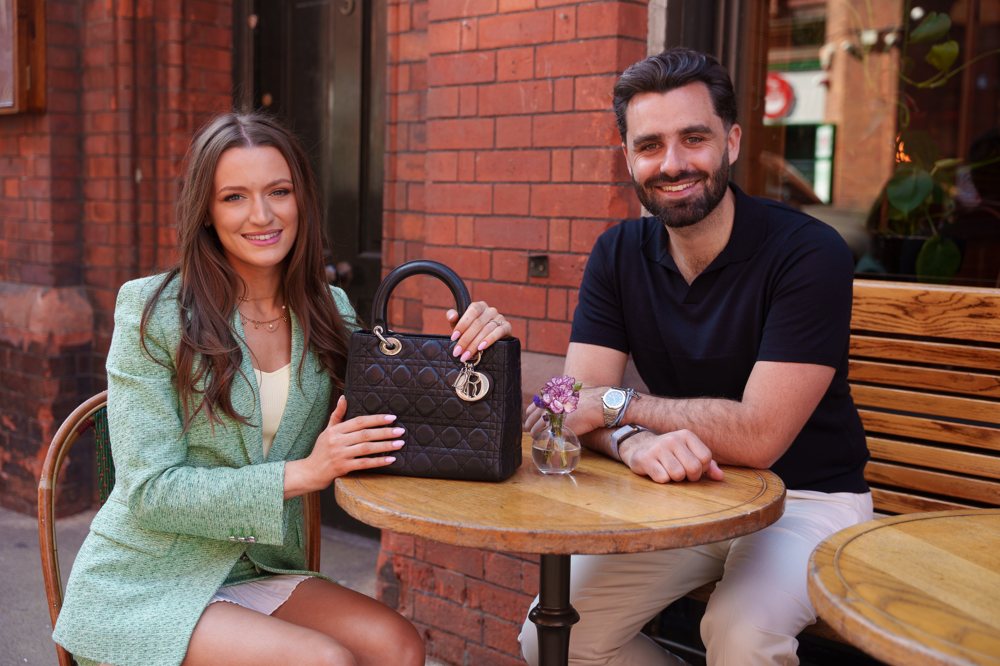Podcast Ep 260: John Kane, head of energy engineering at Veolia Ireland, talks on the ThinkBusiness Podcast about Veolia’s pioneering work in enabling Ireland’s green transition and how the country can achieve its carbon reduction goals.
Veolia is one of Ireland’s leading environmental services companies, covering a range of energy, waste, and water services to drive carbon reduction, protect the environment and build the circular economy.
John Kane is head of Energy Engineering at Veolia Ireland where for the past 12 years he has helped deliver long-term energy and carbon saving solutions for Veolia’s clients, including groundbreaking work at the Mater Hospital and St James’ Hospital.
“Ireland produces some of the best electrical engineers on the planet. The innovation and renewable penetration that Ireland has brought onto the grid through ESB Networks and EirGrid has played a leading role globally in setting ambitious targets”
With over a decade of experience in providing pioneering environmental solutions, this gives him a unique vantage point when it comes to the challenges and solutions of meeting Ireland’s carbon reduction targets.
In particular, he has unique insights into energy security and how the energy grid is vulnerable to weather, global politics and supply chain issues.
Rounding out the circular economy
We begin by discussing Veolia’s role in carbon reduction. “Veolia is a global leader in designing and deploying innovative, cost-effective systems for water, waste and energy management. In Ireland, we operate in nine of the top 10 pharmaceutical sites on the island, food and beverage plants, and two of the largest public sector hospitals. We have 700 people operating across the 32 counties. With ESB Networks and Irish Water, we supply a million people with clean drinking water every day, and we manage over 80,000 tons of hazardous waste on behalf of our pharmaceutical and chemical clients.”
Kane joined Veolia when sustainability emerged as a business priority in 2005. “My focus has always been on energy efficiency – reducing waste, energy waste, waste time. The reason I bring it back to that is it’s always a good thing to reduce waste on a site, because ultimately, these sites are competing against other sister sites around the world to be the most cost-effective producer. Reducing energy on site is such an easy win by reducing their overheads. For me, it’s always been about energy management first, then renewables kick in.
I think a lot of the challenges I see around the island is everybody waiting on the Government to do X or the European Union to do Y, or watching what Trump’s gonna do. It’s just the right thing to do anyway. It’s going to reduce your overheads and make you more cost-effective and competitive.”
Kane says the opportunities for businesses and state bodies to take action are boundless. “Let me give you an example from Westminster Council in the UK. They had a drive to reduce emissions and pollutants. We worked with them to convert bin lorries to electrical units. Veolia operates an energy recovery facility that burns waste collected from commercial and residential premises and produces electricity that sells back to the grid. The genius thing is the lorries that collect the bins are charged electrically by this energy recovery facility off-peak, then during the day they collect refuse, and are reconnected to the grid to operate as spare capacity with remaining electricity.
“It’s the circular economy – you have a council with noise and pollutants from bin lorries, they have a local energy recovery facility producing electricity, so they convert the lorries, reduce noise and carbon emissions, reuse waste that would otherwise go to landfill. If you took apart any part of the system, none of it is groundbreaking – electric vehicles, energy recovery facilities. The clever piece is how it’s all interconnected. That’s where Veolia differentiates itself – the scale, ambition and innovation we bring to relatively mundane challenges.”
What do the opportunities look like for Ireland? “Ireland produces some of the best electrical engineers on the planet. The innovation and renewable penetration that Ireland has brought onto the grid through ESB Networks and EirGrid has played a leading role globally in setting ambitious targets. The electrical engineering community in Ireland is second to none – there’s always scope for improvement, but the ambition and intelligence is there.”
“Going back to data centres – I’m keeping away from political debate, but from a technology and circular economy perspective, you have data centres with huge amounts of waste heat. I’ve seen in other regions where they’ve located industrial scale greenhouses beside data centres.
“We’re working locally in Dublin on recovering heat from data centres and reusing it for industrial, residential, and public sector facilities. You have to look at it as a resource – waste heat. Dublin City Council is looking to reuse waste heat from the Poolbeg energy recovery facility to heat Dublin city centre. These are all resources that can be used with a little bit of political will.”
But is Ireland moving fast enough? “No, because we can always go faster. I think we’re more innovative than we give ourselves credit for. I work with a lot of other nationalities, and I think we’re really strong at interconnection. The electrical engineering community is by far one of the best in the world. We’re the best at piecing A, B and C together into a system – system integration. We trust ourselves with confidence and can pull various expertise together to make a system work.”
As we enter the AI age, however, a lot of the discussion around data centres in Ireland, for example, has been quite negative when it comes to their impact on the grid. Kane sees things a bit differently.
“Let’s use it as a positive. It’s providing load to increase renewables on the grid, providing constant demand for people to invest in renewables. There’s a waste heat stream from data centres that in 99 of 100 cases isn’t being used – that heat can be used to heat housing, hospitals, industry, offsetting fossil fuel usage elsewhere. Veolia is one of the world leaders in that.”
But is the technology there? “It’s always been there. It’s proven, relatively standard – heat exchangers, heat recovery, pumps and pipework. It’s 100% proven technology.”
Like all things, it boils down to who is going to be accountable for making it happen. “There’s regulations being discussed. Local councils and government policy will ultimately influence planning permissions of data centres – how are you using your waste heat? It can be forced, or done collaboratively. A lot of data centres see the corporate value of giving away that heat to contribute to social health.
“When you look at it holistically, from a resilience perspective, if you’re reducing exposure for homes to fossil fuel market volatility, that’s a fantastic win.”
-
Bank of Ireland is welcoming new customers every day – funding investments, working capital and expansions across multiple sectors. To learn more, click here
-
For support in challenging times, click here
-
Listen to the ThinkBusiness Podcast for business insights and inspiration. All episodes are here. You can also listen to the Podcast on:
-
Spotify
-
SoundCloud
-
Apple





